The 69th Session of the Regional Committee for Europe takes place at UN City in Copenhagen on 16–19 September 2019. During these days over 500 delegates will reflect on a decade of public health progress discussing health equity, health literacy and accelerating primary health care. A highlight of this year’s session is the election of the new WHO Regional Director for Europe. At the UN City in Copenhagen we are meeting with the outgoing WHO Regional Director Dr Zsuzsanna Jakab and keynote speaker Ola Rosling, president of the Gapminder Foundation, to discuss the health trends of the last ten years and the challenges that lie ahead in the region.
Ola Rosling, you are the president of the Gapminder Foundation, an independent Swedish foundation with the mission to identify and cure people's worst misconceptions about the world. You just launched the European Health Misconception Study - what kind of misconceptions and trends were identified in the study? And what can we learn from the results?
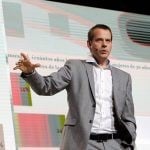
Our findings show that misconceptions about e.g. HIV, smoking, depression and child obesity aren't just common—they're systematic across the three countries we surveyed: Germany, the United Kingdom and France. The pictures European people have in their minds about health are not based on reliable data, despite the fact that it's freely available online. Instead, their perceptions are based on what they learned in school, media headlines and their human intuition, which consistently distorts reality.
While great health improvements have been made in Europe during the past decades, many of them have gone unnoticed by the general public. Examples of these "hidden" positive trends are the dramatic decline in weekly alcohol consumption among young boys, and the declining rate of suicide across the continent. When the public misses important improvements like these, it's easy for people to become apathetic and think that no matter what we do, nothing will ever change — that things will just keep getting worse.
Although this study was conducted in three countries, we believe the results are reflective of Europe as a whole. We have conducted similar experiments in many other countries using local fact questions on the same topics. Overall, the performance of our respondents indicates that similar misconceptions exist everywhere.
The results revealed some staggering misconceptions:
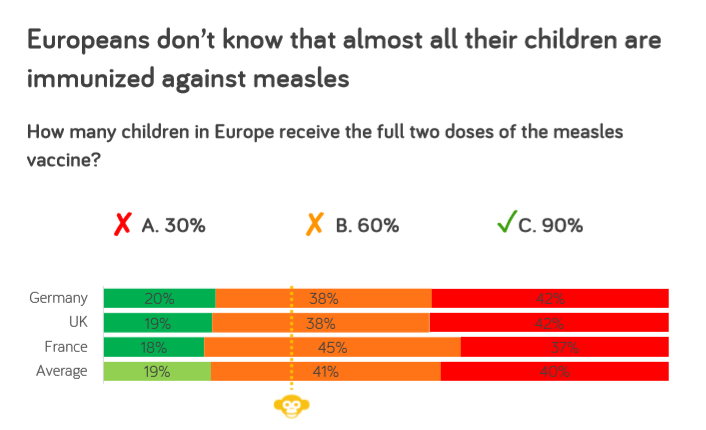
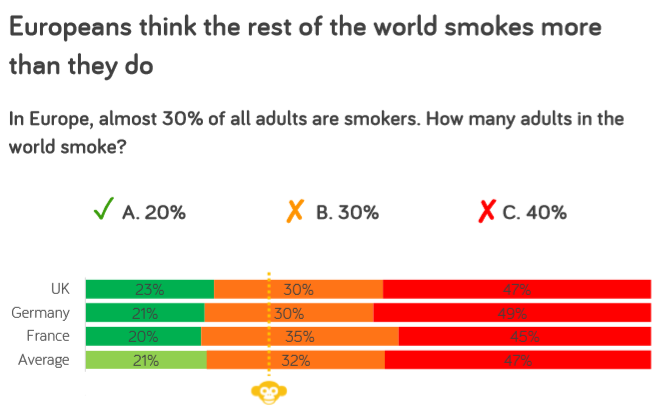
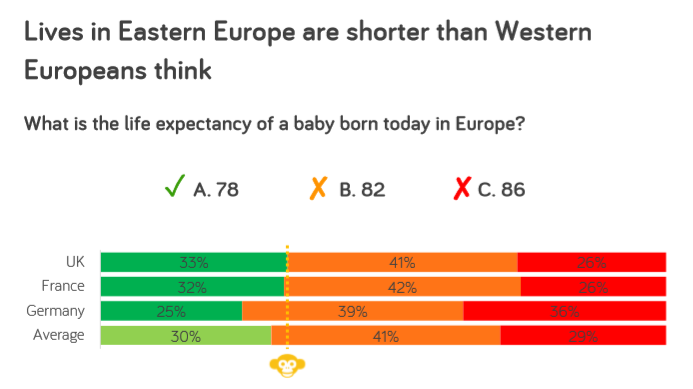
So what can we learn from all this? Once we've made our minds up about something, we tend to file away the facts in our mind, and rarely think to check and see if they still hold true. So no matter what, any time we're about to form an opinion about something, we must remember to check the facts, check the source, and maybe even double check another source before making up our minds. Equally, don't forget to update your fact-bank from time to time — things do change, and many (but not all) things tend to get better over time.
Dr Jakab, your term of office as Regional Director has come to an end and you are now assuming to role of Deputy Director-General of WHO. In which areas has progress been achieved during the last ten years and what role has the WHO Regional Office for Europe played? Which are the most critical challenges that remain in the Region?
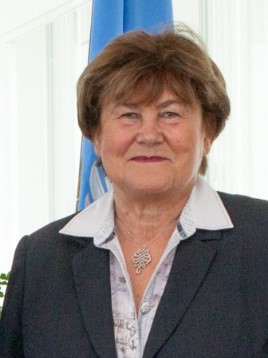
This is a broad question, with no short answer. When looking at what we have achieved in the European Region over the last 10 years, we can celebrate substantial progress. Life expectancy at birth increased by nearly 2 years on average and has now reached close to 78 years. As part of this success, Europe is setting a great example to the world for achieving an impressive reduction in premature mortality from noncommunicable diseases (NCDs). Moreover, Europe is likely to achieve the Sustainable Development Goals (SDG) target on NCDs earlier than 2030. There has been a decrease in maternal and infant mortality across the Region. The Region became malaria free in 2016 and successfully preserves its polio-free status. Major infectious diseases are increasingly under control and we are better able than ever to respond to emergencies. The WHO European Office plays a critical role in helping its Members States improve the health of their populations.
But we can do better - with our knowledge and experience on what works, and new opportunities provided by technology, we should not wait decades to achieve the highest attainable level of health for the 900 million people who live in the WHO European Region and leave no one behind.
In terms of the health landscape itself, in Europe it is drastically changing by a rapid ageing of the population, an increased incidence of multi-morbidities due to various diseases and determinants of health, rapid emergence of antimicrobial resistance, pressures on the financial and economic environment, migration, the considerable potential of technologies and growing public expectations regarding healthcare. Accelerated advances in medical technology provide potential for new methods of delivering and organizing health care, but fragmentation remains a key challenge. Further, we see both shortages and an uneven distribution of health care workers in some contexts, and difficulties in planning for future needs. More specifically, while there have been significant advances in people's health and life expectancy in recent years, relative improvements have been unequal among and within countries.
It is clear, therefore, that today's health challenges require new approaches.
We must address all root causes of the disease burden - including the political, economic, social, commercial and cultural determinants of health – holistically. There are new and innovative ways for the different sectors to work together towards understanding the interconnectedness of these issues and determinants, and most importantly engaging people in these processes.
We must recognize that the health sector – and the health system specifically – is an investment in people and their well-being, in society, and in development and the economy rather than as an expenditure or cost. Some people outside the health sector might be skeptical about this investment, but we must flip the argument. Rather than being defensive about accusations that health is a growing cost burden, we can be proactive with strong evidence that poor health is major drain on a country's economy. Even more than that, the evidence on the benefits and returns from investing in health systems, including specific public health interventions, is actually quite good and growing. Our challenge here is convince finance decision-makers of this evidence.
The Global Development Agenda 2030 provides a solid framework for addressing all these challenges. It's the blueprint of development towards a world focused on people. WHO's General Programme of Work is fully aligned with this Agenda, and we aim to ensure healthy lives and promoting well-being for all at all ages. We have clearly set priorities. The coming five years will be crucial for ensuring the achievement of the SDGs. The "triple billion" goal is a joint effort of Member States, WHO and other partners. Meaning, we will work on:
Essential to this is WHO's support to countries at national level, which is why our Country Offices are so vital. For countries themselves, it is crucial to set realistic national health targets and carry them out successfully. WHO stands ready to support them in this endeavour.
The WHO Regional Office for Europe (WHO/Europe) is one of WHO's six regional offices around the world. WHO is the authority responsible for public health within the United Nations system. For the official website please see here.